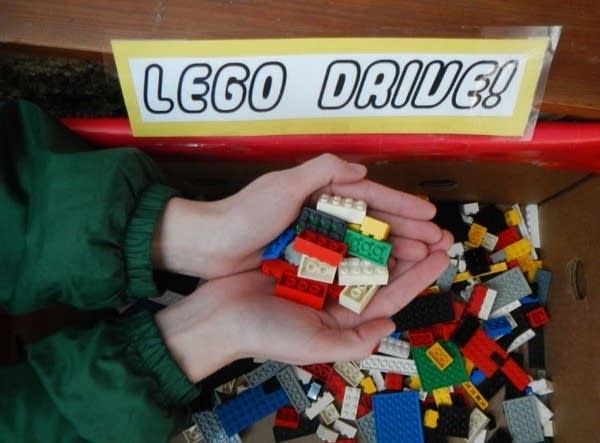Minn. educator wants your Legos to teach kids about watersheds

Allison Bender is in search of 45,000 Lego bricks. And she could also use a little advice from adult Lego experts.
The member of Minnesota GreenCorps, which is part of the Americorps program, is an educator at Whitewater State Park in southeastern Minnesota. What started as a local Eagle Scout project has now landed in Bender's lap, and she's committed to seeing it through.
The goal is to build a 4-by-6 foot Lego model of the Whitewater watershed.
"We're reaching out to community members, telling them about the project, trying to get them to dig out those dusty Legos from their attics and basements," she said.
Create a More Connected Minnesota
MPR News is your trusted resource for the news you need. With your support, MPR News brings accessible, courageous journalism and authentic conversation to everyone - free of paywalls and barriers. Your gift makes a difference.
Legos are being collected at seven different sites in southeastern Minnesota plus the Minnesota Pollution Control Agency headquarters in St. Paul through Jan. 15.
Bender said a Winona State University professor is working with students on a map of the watershed that can be translated into a Lego design.
During their spring break, local youth will construct the model in 48 10-inch-by-10-inch sections so that the model can be transported in pieces to different locations.
"The idea is to have this model, once it's created, not be sitting in the state park nature center but to be going out into the community," Bender said.
Bender is seeking advice from adult Lego experts because she wants to minimize the weight of each Lego block while also designing the model to be as accurate as possible, with different colors used to indicate farmland, forest, cities and other uses.
Bender said many people are excited about water in the state, but most outreach efforts have targeted adults. She said she hopes the Lego project will help people think about how land use and individual decisions can impact water quality for a broader area.
"We wanted to create something that would really draw in families and children," she said.